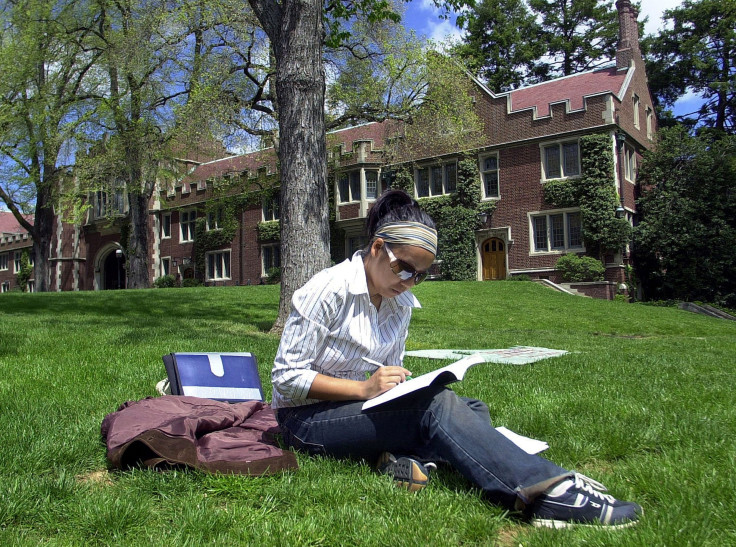Lawrence Rosen, Princeton Anthropology Professor Under Fire For Using N-word During Lecture

An Anthropology professor at Princeton University recently came under fire for supposedly using the N-word during his lecture which prompted several students to walk out of his class and caused an expletive-laced confrontation in the class.
Several students accused professor Lawrence Rosen of using the N-word while asking a question during his Anthropology 212 course named, “Cultural Freedoms: Hate Speech, Blasphemy, and Pornography”.
According to a report in the New York Post, during a lecture on oppressive symbolism, Rosen asked his class: “What is worse, a white man punching a black man, or a white man calling a black man a n-----?”
The students said after asking his initial question, he used the word twice again during an in-class discussion.
Class students Devyn Holliday and Destiny Salter told the local college newspaper that at the time of the lecture there were six black students present in the class who were allegedly left stunned by Rosen’s use of the word.
“All the black students were looking at each other as if asking whether he actually said that,” Salter said.
Another unnamed student said Rosen’s use of the word N-word prompted at least four students to leave the class early.
Reports state one of the students, Malachi Byrd, who walked out of the class, returned later and confronted Rosen using an expletive, to which the professor said: “It’s supposed to deliver a gut punch, so that’s why I used it.”
At least two students supposedly filed a complaint against Rosen with university officials after the lecture.
Director of studies for Princeton’s Rockefeller College, Justine Levine, released a statement for the students about the same:
“The conversations and disagreements that took place in the seminar led by Professor Rosen on Tuesday afternoon are part of the vigorous engagement and robust debate that are central to what we do. We will continue to look for ways to encourage discussions about free speech and inclusivity with the students in Professor Rosen’s class and the campus community more broadly. As part of those ongoing efforts, we are in the process of setting up a meeting with the students.”
Even after facing backlash from students, department chair, Carolyn Rouse, backed Rosen and said:
“If our students leave our classes knowing exactly what they knew when they entered, then we didn’t do our jobs. Rosen has used the same example year after year. This is the first year he got the response he did from the students. This is diagnostic of the level of overt anti-black racism in the country today. Anti-American and anti-Semitic examples did not upset the students, but an example of racism did. This did not happen when Obama was president when the example seemed less real and seemed to have less power.”
According to his bio on the university’s official website, Rosen is an anthropologist as well as a lawyer. His main interest lies in studying the relation between cultural concepts and their implementation in social and legal relationships.
Rosen has worked as an attorney on several American Indian legal cases; however, his main fieldwork has been in North Africa.
In addition to this, he also has a Ph.D. and a Juris Doctor degree from the University of Chicago.
Rosen has authored publications such as “Law as Culture: An Invitation, The American Indian” and co-authored “Meaning and Order in Moroccan Society”.
His other works include “Bargaining for Reality: The Construction of Social Relations in a Muslim Community”, “The Anthropology of Justice: Law as Culture in Muslim Society," and "Other Intentions: Cultural Contexts and the Attribution of Inner States”.
As of now, he teaches courses on law and anthropology, comparative religious systems, the American Indian and the law, and the theory of cultural systems, at the university.
In 1997, Rosen received the Presidential Distinguished Teaching Award. He was also a Phi Beta Kappa Visiting Scholar for the year 1997-98.
© Copyright IBTimes 2024. All rights reserved.












